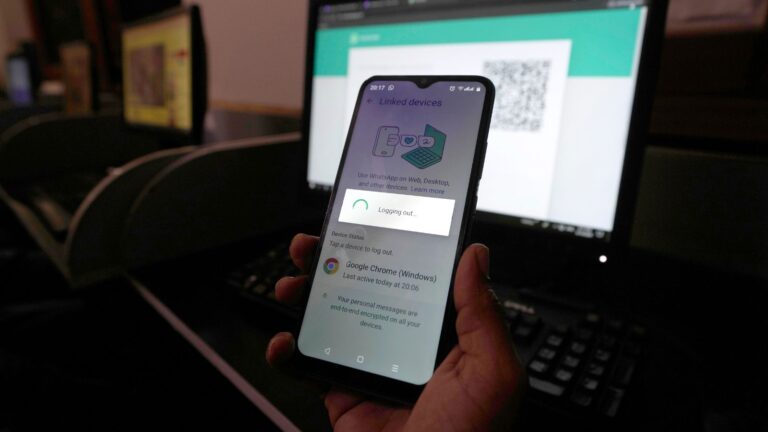Pakistan has been plagued by slow internet speeds for weeks, frustrating users and sparking a debate over their causes.
Activists say the government is building a Chinese-style internet firewall to tighten control over the online space, while authorities point to the spread of secure connections and VPNs as the cause of the slowdown.
Pakistan’s government has a history of shutting down the internet to stifle dissent, particularly since the unrest that followed last year’s ouster of former Prime Minister Imran Khan.
Governments are trying to control public sentiment, which is increasingly shifting to digital platforms, with social media platforms being blocked and connection speeds being throttled.
The microblogging site “X” has been blocked since February over “national security” concerns, a move that has particularly affected Khan’s supporters, who are heavy users of the platform.

But Shaza Fatima, minister of state for information technology, denied that the government was to blame for the recent internet slowdowns. She said on Sunday that her team was working “tirelessly” with internet service providers and telecommunications companies to resolve the issues.
Fatima said the problem was caused by a “large number of people” using VPNs, which “put a strain on the network and slow down the internet.” She denied claims that the government was deliberately slowing down connections, calling them “totally false.”
Despite these assurances, Fatima acknowledged that the government has been upgrading systems to improve cybersecurity.
“The government’s right [take such measures] “Given the cybersecurity attacks this country has had to go through,” she said.
But activists aren’t convinced. Shazad Ahmad, head of local digital rights group Bytes for All, said his group has “ample technical evidence” to support the firewall’s existence.
“The purpose appears to be to monitor online traffic and limit its spread. [of information] “The suppression of political expression, especially in online spaces,” Ahmad said.
The impact of slower internet speeds has raised concerns beyond civil liberties, with Fariha Aziz, co-founder of free speech group Bolo Bi, warning that the problem was now affecting livelihoods and the economy.
Business leaders have echoed these concerns, with the Pakistan Software Houses Association warning that slow connection speeds could cost the IT industry up to $300 million.
The association described the situation as a “direct, concrete and aggressive attack on the industry’s survival” and warned that “without immediate and decisive action, a mass exodus of tech companies is not just a possibility but an imminent reality.”
Responding to growing discontent, activists have filed a petition in the Islamabad High Court, seeking to have access to the internet recognised as a fundamental right under Pakistan’s constitution.
(With inputs from the BBC)



